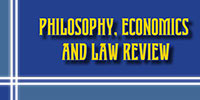Mgr. Veronika KRAJÍČKOVÁ
Ph.D. (Philosophy) (University of South Bohemia) Czech Republic
geyerova@seznam.cz,
krajickova@ff.jcu.cz
UDC 378
DOI : 10.31733/2786-491X-2022-1-26-41
Keywords: Woolf, Whitehead, process aesthetics, ordinary experience, art
Abstract. This article explores the parallels between Virginia Woolf’s aestheticized account of reality in her fiction and Alfred North Whitehead’s process aesthetics that emphasizes the fact that any experience may be classified as aesthetic enjoyment of vivid values. While scholars often associate Woolf with the high modernist aesthetics and formalism, the writer was fascinated by the everyday and the lure of common objects that generate a strong emotional response on the part of the perceiving subject. Especially in her early short stories “The Mark on the Wallˮ and “Solid Objectsˮ, the main characters manifest a childlike compulsion to explore surrounding objects and the need to penetrate “deeper, away from the surface, with its hard separate factsˮ. Similarly, in his philosophical system, Whitehead wants to go beyond what we already know about the external world and explore the inner organic relations behind the appearance of a thing, or in Woolf’s words the “pattern behind the cotton woolˮ of the everyday. In Science and the Modern World Whitehead argues that the problem of the modern civilization is the lack of art, experience, and value in the mundane and that it is the artist who should cultivate “the habits of aesthetic apprehension.ˮ Woolf likewise rejects the dichotomy between art in its narrow sense and its broad sense, conceived as the aesthetic enjoyment of reality, and claims in her famous essay “Modern Fictionˮ that the subject of modern art can be anything and that fiction should translate artistically the impressions of “an ordinary mind on an ordinary dayˮ.
References
Banfield, Ann. The Phantom Table: Woolf, Fry, Russell and the Epistemology of Modernism. Cambridge: Cambridge University Press, 2000.
Bell, Clive. Art. New York: Frederick A. Stokes Company, 1914.
Brown, Bill. Other Things. Chicago: University of Chicago Press, 2015.
“Thing Theory.” In The Object Reader. Edited by Fiona Candlin and Raiford Guins, pp. 139-152. London: Routledge, 2009.
Dadejík, Ondřej et al., Process and Aesthetics: An Outline and Beyond. Prague: Karolinum, 2021.
Dewey, John. Art as Experience. New York: Capricorn Books, 1958.
Hagen, Benjamin.“Bloomsbury and Philosophy.” In The Handbook to the Bloomsbury Group. Edited by Derek Ryan and Stephen Ross. 135-150. London: Bloomsbury Academic, 2018.
Nagel, Thomas. Mortal Questions. Cambridge: CUP, 2008.
“What Is It Like to Be a Bat?” The Philosophical Review 83, no. 4 (1974): pp. 435-450. https://www.jstor.org/stable/2183914.
Rescher, Nicholas. Process Metaphysics: An Introduction to Process Philosophy. Albany: State University of New York Press, 1996.
Sim, Lorraine. “Virginia Woolf Tracing Patterns through Plato's Forms.” Journal of Modern Literature 28, no. 2 (2005): 38-48. https://www.jstor.org/stable/3831714.
Virginia Woolf: The Pattern of Ordinary Experience. Farnham: Ashgate, 2010.
Stephen, Leslie. “What is Materialism?” In Agnostic’s Apology and Other Essays. London: Smith, Elder & Co., 1903.
Whitehead, Alfred North. Adventures of Ideas. New York: The Free Press, 1967.
The Concept of Nature. Cambridge: CUP, 2015.
Modes of Thought. New York: The Free Press, 1968.
Process and Reality. New York: The Free Press, 1978.
Science and the Modern World. New York: The Free Press, 1967.
Symbolism: Its Meaning and Effect. Cambridge: CUP, 1958.
Whitehead, Alfred North, and Lucien Price, Dialogues of Alfred North Whitehead. Boston: David R. Godine Publisher 2001.
Woolf, Virginia. “A Sketch of the Past.” In Moments of Being. 64-159. Edited by Jeanne Schulkind. London: Harcourt, 1985.
Mrs Dalloway. Ware: Wordsworth Classics, 2003.
“Philosophy in Fiction,” In The Essays of Virginis Woolf: Volume 2, 1912-1918. Edited by Andrew McNeillie. 208-212. New York: Harcourt Brace Jovanovich, 1987.
Selected Essays. Edited by David Bradshaw. Oxford: OUP, 2009.
The Complete Shorter Fiction of Virginia Woolf. Edited by Susan Dick. London: Harcourt, 1989.
The Waves. Ware: Wordsworth Classics, 2000.
To the Lighthouse. London: Penguin Books, 2000.
